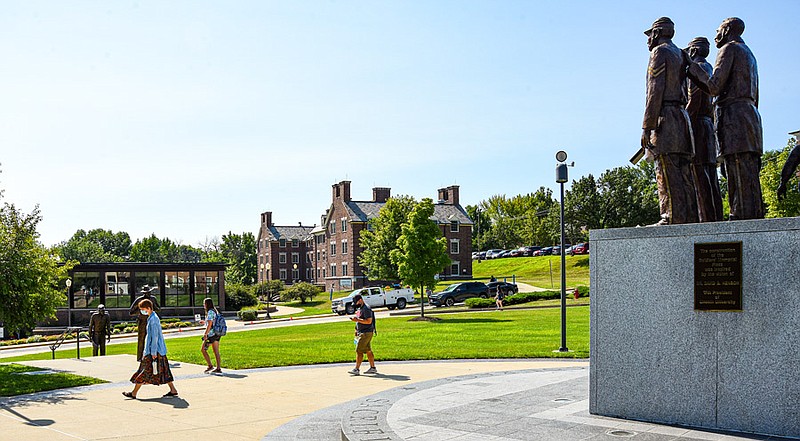Lincoln University's contract with an outside search firm could cost the university an estimated $125,000- $135,000, university officials said.
Greenwood/Asher & Associates, LLC was hired by Lincoln earlier this month to identify candidates in its search for a permanent president.
The search firm has 29 years of experience in executive searches, consulting and training, and will be responsible for identifying candidates from across the country.
Lincoln also named Curator Everidge Cade as chairman of its Board of Curators Presidential Search Committee, which will hold its first meeting Sept. 30.
Cade said the estimate for the search for the president and another key administrative position is on the higher end of projected costs as some indirect expenses are still being worked out.
According to the university's contract with Greenwood/Asher, the firm's professional fees for the first search are 33.3 percent of the first year's estimated cash compensation - determined by consultant base salary, deferred compensation and any bonuses paid during the first year - or $60,000, whichever is higher.
In addition to its presidential search, Lincoln University will use the search firm to identify candidates for the position of vice president of academic affairs and provost, a critical administrative role overseeing the university's academic programming, institutional research and Academic Success Center.
For this second search, the firm will charge the university 33.3 percent of the first year's estimated cash compensation or $55,000, whichever is higher.
According to the contract, Greenwood/Asher bills its clients based on the combined professional fee of $115,000, which is split into three monthly payments and can be adjusted later.
The university already paid $41,641.67 upon execution of the contract.
The amount Lincoln will pay to Greenwood/Asher could end up being more or less than the estimate because the contract takes into account several variables, including indirect expenses, consultant travel expenses and third party background checks or screenings.
Cade said the cost will also be affected by the number of meetings required and how many times the representative has to visit campus in-person as opposed to attending meetings virtually, among other factors.
Cade said Greenwood/Asher was chosen because the firm's philosophy and understanding of needs were more aligned with Lincoln than the other firms.
The representative from Greenwood/Asher also made the interview more personal, Cade said.
"She took the time to go out, because she had some time before her interview, to look around and get an idea of what was going on with the campus," Cade said. "Those are little things, but little things mean quite a bit."
In addition to the personal touch and focused workload of the consultant, Cade said the curators enjoyed Greenwood/Asher's responses to questions and the firm's experience in higher education searches.
Cade said the search is still on track with its original timeline and the search committee is working on pulling together requirements and qualities it's looking for in Lincoln's next president.
He said the university is also negotiating how many candidates the search firm is expected to identify for each position.
"I want to see good candidates and so that's what I'm saying," Cade said. "I'm not going to quantify that. If they've got some really good candidates, it may vary."
The roughly 10-person presidential search committee, which has representatives from faculty, staff, student body, alumni, foundation and curators, will pare down however many candidates the search firm identifies to four.
Those four candidates will then be interviewed by the full Board of Curators, which will make a final hiring decision.
According to its original timeline, the university hopes to have candidates available for interviews by November.
Cade said he is looking to find a president that is all-encompassing in what they do, showing competence in everything from academics to recruiting and securing investments.
"Our goal is to get a good president and somebody that understands the community, understands the faculty, the students and our needs," Cade said.
Lincoln University began searching for a president after former LU President Jerald Jones Woolfolk announced her resignation in May.
John Moseley, the university's former athletic director and head men's basketball coach, began serving as interim president shortly after. Moseley has said he intends to be a candidate for the permanent position.

